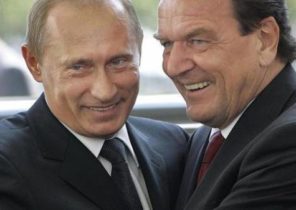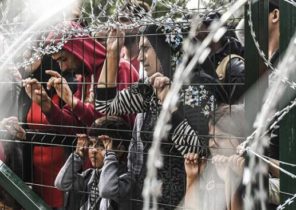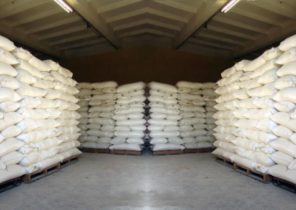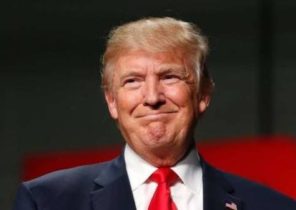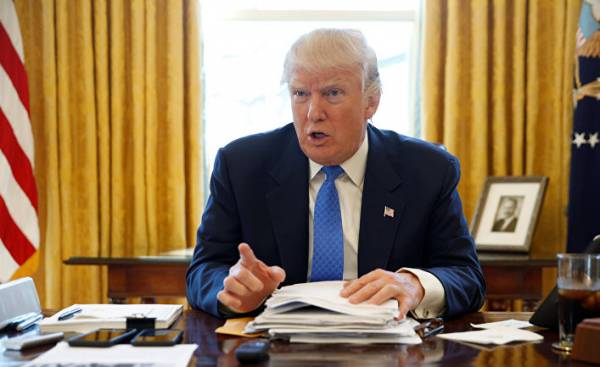
The impression that world leaders are at a loss as to how to improve relations with U.S. President Donald trump, given his concern views and often strange behavior with respect to both the politicians and the media and to allies and enemies. Trump is not just a challenge to the established political system to “to shake”. He feels the foundations of American democracy. This test can lead to change attitudes in the United States and its global role.
Trump was elected primarily for one reason: a significant proportion of American voters already tired of the state of the economy and the policies that control them. According to these voters, from globalization — spread flows of labour, goods, services, money, information and technology in the world — everybody wins, except for them.
They were right. Although globalization and trade openness, underlying, capable of enriching the entire global economy is at the moment, the rich captured a disproportionate share of the profits. In the United States between 1980 and 2013 salary 1% of workers has increased by 138%, while for the remaining 90%, it grew by only 15%.
Currently there is a huge gap between the struggling workers of the so-called rust-belt and billionaires from Silicon valley and wall street. It seems the only people who managed to emerge from the global economic crisis of 2008 unscathed, were the ones who caused it.
Trump seized on the split during his campaign. He used the fears and disappointments of this specific group of households of the working class, directing their anger not just on the rich (such as trump), but also in “establishment” — of the ruling politicians, who were allegedly in collusion with wall street. For a political outsider that questioned the political establishment (which was the democratic candidate Hillary Clinton), it was an effective tactic.
But the election is behind us, and for trump it’s time to help the people who elected him. It is not yet clear how he intends to do and does it do this. If trump would follow its pre-election rhetoric, he might hurt this group — and many others — even more.
During the campaign in order to garner support, trump often used as a “scapegoat” immigrants and the world’s major exporters from developing economies such as China and Mexico. The problem primarily lies not in immigration or offshoring, and automation that displaces traditional labour from the production process in the United States.
This means that if trump will fulfill its election promises — for example, by introducing stringent immigration restrictions and high tariffs on import — it does not actually solve the problem. Such steps would only provoke retaliatory measures by key trading partners such as China, causing serious damage to the global economy, including the us.
It would be useful to focus on improving the management of globalization, and not try to reverse it. To start the administration trump might offer more powerful incentives for foreign investment in key sectors of the economy such as the automotive industry and infrastructure.
Effective control of the forces of globalization is a measure which Japan has protected vulnerable sectors of its economy. The opening of trade in agriculture has significantly improved the living standards of ordinary Japanese, but it could easily hurt the farmers of the country. Fortunately, the government of Prime Minister Shinzo Abe acknowledged the risk and took measures to protect farmers, including in the negotiations on the TRANS-Pacific partnership (against which is now the trump).
Against this background, the trump meeting with Abe give some reason to hope that the American government takes a similar approach. The problem is that even if trump really understands its value, he might want to do differently. He is, after all, demonstrated a clear preference for private, bilateral deals such as those he makes in his business, and not engage formal and multilateral diplomacy.
In a democratic society personal transactions of this kind do not always work. To solve complex and often controversial issues, it is necessary to enlist the support of a wide range of players, and that requires clear ground rules. Fortunately, as soon learns trump the US Constitution works well in applying these rules.
In Western democracies the Constitution is the Supreme law of the land, having priority over all other legal acts. The same applies to the United States. But, as explained Michael K. young, President Texas A&M University, as the US Constitution was drawn up when the different States having their own laws, agreed to establish a political Union, it operates as a set of basic rules for negotiations between States, and between the legislative, Executive and judicial branches of government.
Focusing on the checks and balances the framers of the U.S. Constitution created a safety mechanism for a political system designed to protect it from unexpected shocks associated with any of its many moving parts. With the arrival of trump, which is a sudden blow, this safety valve — that is, the Constitution of the United States — was challenged.
At the moment, the system survived. The constitutional right to freedom of expression and peaceful Assembly remain in force and shall be implemented on a mass scale. The courts have not bowed before trump struck the first in his administrative order prohibiting entry into the United States people from seven predominantly Muslim countries.
But the test is not over. The people and their leaders must continue to defend democracy and the courts — their independence. It expects the whole world.

